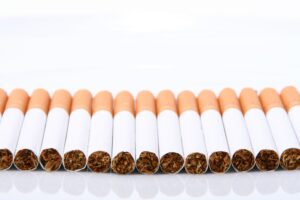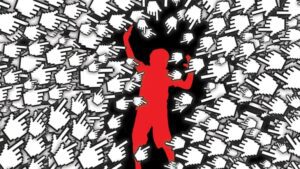
The Verkhovna Rada intends to prohibit the use of hydrogenated palm oil in the production of food products, mostly consumed by children, to regulate the use of trans fatty acids in them, as well as to establish labeling requirements for foods containing palm oil and fines for their sale. Corresponding bill No. 5148 on amendments to certain laws of Ukraine concerning improving the quality of food products eaten by children was supported at first reading by 304 MPs with the required 226 votes.
According to an explanatory note to the document, it is proposed to ban the use of palm oil in traditional dairy products, as well as hydrogenated palm oil and other hydrogenated vegetable fats in baby food and confectionery.
In addition, the bill prohibits the production and circulation of food products in which the content of trans fatty acids exceeds 2 grams per 100 grams of the total amount of fat in the food product.
The explanatory note states that the sale of food products containing the above substances and ingredients entails the imposition of a fine on legal entities in the amount of 40 minimum wages (currently the minimum wage is UAH 6,000), on individual entrepreneurs – in the amount of 25 minimum wages.
The document also establishes the labeling of products containing palm oil, which, if the bill enters into force, will have to be marked with the easily visible phrase “Contains palm oil” next to the name of the product.

The adoption of a bill on public health protection from tobacco exposure alone with earlier rejected and repeatedly submitted proposals for the second reading, such as a ban on the display of tobacco products at sales outlets, would increase counterfeiting, the European Business Association (EBA) has said on its website.
The association said that on July 13, 2021, at the sitting of the Verkhovna Rada Committee, it was unanimously decided to recommend the wording of bill No. 4358 on amendments to certain laws of Ukraine on public health protection from tobacco exposure of November 10, 2020, for adoption at the first and final reading by Verkhovna Rada. The EBA has repeatedly submitted proposals for bill No. 4358 and the comments were partially taken into account.
“According to the information received in the working order, some MPs-initiators of the amendments to bill No. 4358, which had been rejected by the Verkhovna Rada Committee, announced their intention to initiate discussion of such amendments during the voting of bill No. 4358 in the second reading,” the association said.
These include amendments on banning the display of tobacco products at sales outlets, as well as amendments on introducing a standardized pack for cigarettes.
“Business urges MPs to implement the requirements of Directive 2014/40/EU of the European Parliament and of the Council of 3 April 2014 without excessive regulatory burden,” the EBA said.

The Verkhovna Rada intends to amend the law on the protection of public morals regarding the protection of the rights and interests of children.
A total of 343 MPs voted for the corresponding bill No. 5330-1 at the first reading.
The bill, in particular, proposes to prohibit creation and distribution of photos and/or videos of sexual or erotic images of children (the current law prohibits the use of images of children in any form only in products of a sexual or erotic nature).
According to the bill, products of a sexual or erotic nature can be distributed only if they are not available to children and are not imposed on consumers.

The Verkhovna Rada supported at first reading the amendments to Article 22 of the Law on advertising regarding the expansion of the law to electronic cigarettes and liquids used in them.
Some 284 MPs backed bill No. 4212, with the minimum required votes of 226.
The document provides for a ban on advertising of tobacco products, electronic cigarettes, liquids used in electronic cigarettes, advertising marks for goods and services, other objects of intellectual property rights, under which tobacco products, electronic cigarettes and liquids used in electronic cigarettes are produced.
The bill prohibits the placement on any other goods of images of tobacco products, electronic cigarettes, liquids used in electronic cigarettes, marks for goods and services under which tobacco products are produced (such as lighters and ashtrays).
It is also prohibited to sponsor television, radio, theater and concert, sports and other events using marks for goods and services, other objects of intellectual property rights, under which tobacco products, electronic cigarettes, liquids used in electronic cigarettes are produced.
According to the document, advertisements for electronic cigarettes and e-liquids should not contain images of popular people or approval of smoking or use of electronic cigarettes. Also, advertising should not give the impression that most people smoke or use electronic cigarettes.
According to an explanatory note to the bill, the ban on advertising of electronic cigarettes and the liquids used in them is aimed at preserving the health of the nation. The document is aimed at reducing the use of electronic cigarettes and the liquids used in them.

The Ukrainian government has made changes to the list of exceptions for foreigners who are not denied entry in the country, the Ukrainian Foreign Ministry said on Facebook.
The new rules scrap the provision allowing foreigners who are in transit on the territory of Ukraine to enter the country.
Exceptions from the entry ban are made for people who are spouses, parents, children, or grandparents of a citizen of Ukraine.
Children are given legal status before they become full of age.
If people are sent to Ukraine to study, they only have to go to higher education establishments.
According to earlier reports, the Ukrainian government closed the borders to foreign citizens until September 28.
The restriction did not affect people who have residence permits, are members of international and humanitarian missions, who enter the country in transit, who drive cargo road vehicles, are instructors of NATO states, culture figures, people who have invitations from culture establishments, and also some other categories of people.

Changes to the registration of vehicles, initiated by the Interior Ministry of Ukraine, which, in particular, prohibit the registration of cars with salvage titles imported from abroad, will create problems for companies involved in this business, will make it impossible for Ukrainians to buy such cars with a clear history at reasonable prices and also entail losses of the national budget in the amount of at least $327 million, according to Columb Trade company.
“Now more than 90% of cars with salvage titles come to Ukraine with such documents (marked for recycling), but in fact they have minor damage (lighting, bumpers, wings) and after restoration pass certification in authorized bodies. The proposed changes may replace the functionality of certification bodies, while citizens are deprived of the opportunity to purchase a car with a clear history of origin,” Roman Voloshin, a lawyer of the company, said at a press conference at Interfax-Ukraine.
He emphasized that in general the draft resolution, posted on the website of the Interior Ministry for discussion, contains many positive norms that will simplify the process of registration (re-registration of a car), however, two provisions on the prohibition of registration of cars with salvage titles, as well as on the need for mandatory translation of accompanying documents to the official language with an apostille will create chaos in the market, will entail additional costs for buyers and budget losses.
“Only the requirement of compulsory apostille, according to our calculations, will lead to additional costs for buyers of $200-300,” Voloshin said.
According to the calculations cited by Columb Trade co-founder Volodymyr Kovel, about 36,800 people who want to buy a car from abroad can suffer from such innovations (registration ban).
“The transit of a car from the United States takes three months, and the average monthly supply is 10,000 cars. Now 30,000 cars are in transit. Even minor repairs, taking into account certification and registration, take about a month. Respectively, there will be 40,000 such cars, not yet registered, of which 92% with the status of to be recycled, that is, 36,800 cars,” Kovel said.
He considers it incorrect to take into account the status of recycling, which the United States accept for itself, since there it is done by the method of financial accounting of the residual value of a car, while the damage can be minor and in Ukraine they can be repaired for $2,500-3,000.
Kovel stressed that these restrictions will not force Ukrainians to refuse buying cars from abroad, and they will be forced to buy the same cars from the United States, for example, in Georgia or Latvia, where this business has long been established, but then they will serve the orders of Ukrainians and get receipts from customs clearance and other fees going to the budget of their countries. As a result, the car will cost a Ukrainian almost $3,000 more, taking into account the extension of the logistics chain, the need to bring cars from neighboring countries and other expenses.